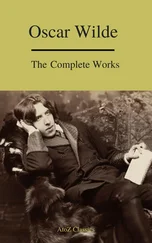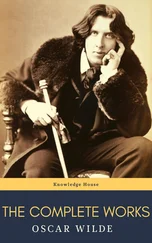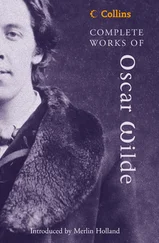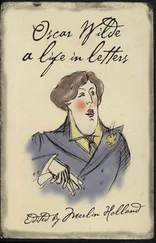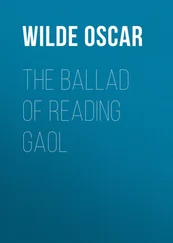BIBLIOGRAPHY The Works
The following is a bibliography of the works of Oscar Wilde as first published in book form. It includes privately printed first editions but not pirated editions if they predated the former. Piracy of Wilde’s works between his death in 1900 and the discharge of his estate from bankruptcy in 1906 was rife and only halted by the efforts of Robbie Ross, his literary executor, once he had full control of the publishing rights.
The Ballad of Reading Gaol (London: Leonard Smithers & Co, 1898)
First published pseudonymously under Wilde’s prison cell number ‘C.3.3.’. Only with the seventh edition did Wilde’s name appear on the title page. The first edition was 800 copies.
De Profundis (London: Methuen & Co, 1905)
Heavily expurgated by Wilde’s literary executor in the first edition of 10,000 copies, this letter to Alfred Douglas was first published in its entirety only in 1962. The story is treated more fully in the introduction to the ‘Essays’ section of the present edition.
The Duchess of Padua (New York?/London?, 1891?)
Mystery surrounds the first printed edition. Wilde wrote the play for the American actress Mary Anderson when he was in Paris early in 1883. He sent it to her, but she turned it down. It was first played in New York in 1891. At some stage twenty acting copies were printed of which only a handful still exist. They bear the date 15 March 1883, the date he finished writing it, but given the state of Wilde’s finances in 1883, it is much more likely to have been printed in time for the rehearsals in 1891.
The Happy Prince and Other Tales. Illustrated by Walter Crane and Jacomb Hood (London: David Nutt, 1888)
Containing ‘The Happy Prince’, ‘The Selfish Giant’, ‘The Remarkable Rocket’, ‘The Devoted Friend’ and ‘The Nightingale and the Rose’, all of which were published for the first time. 1000 copies were printed.
A House of Pomegranates. Illustrated by Charles Ricketts and Charles Shannon (London: Osgood, McIlvaine & Co, 1891)
Two of the stories ‘The Young King’ and ‘The Birthday of the Infanta had previously been published in periodicals (see chronology); ‘The Fisherman and His Soul’ and ‘The Star-Child’ were first published in this volume. The edition was 1000 copies.
An Ideal Husband (London: Leonard Smithers & Co, 1899)
The first edition consisted of 1000 copies. Like The Importance of Being Earnest , issued earlier the same year, ‘By the author of Lady Windermere’s Fan’ , appeared instead of Wilde’s name on the title page.
The Importance of Being Earnest (London: Leonard Smithers & Co, 1899)
1000 copies were printed of the first edition. Originally written in four acts, Wilde pruned it down to three at the request of the actor-manager George Alexander who first produced it. Another copy of the four-act version had been sent to an impressario in America late in 1894 but was never staged because of Wilde’s disgrace. It was discovered years later in New York and first published in 1956.
Intentions (London: Osgood, McIlvaine & Co, 1891)
Containing ‘The Truth of Masks’, ‘The Critic as Artist’, ‘The Decay of Lying’ and ‘Pen, Pencil and Poison’, all of which essays had previously been published in periodicals (see chronology) and all show considerable variations from the text as first published. The edition consisted of 1500 copies.
Lady Windermere’s Fan (London: Elkin Matthews & John Lane, 1893) An edition of 500 copies.
Lord Arthur Savile’s Crime and Other Stories (London: Osgood, McIlvaine & Co, 1891)
All these stories ‘Lord Arthur Savile’s Crime’, ‘The Model Millionaire’, ‘The Sphinx without a Secret’ and ‘The Canterville Ghost’ had previously been published in periodicals (see chronology). 2000 copies were printed.
Oscariana (London: Privately Printed by Arthur Humphries, 1895)
A selection of epigrams and aphorisms from Wrilde’s writings made by his wife, Constance. Only 50 copies were printed of this first edition.
The Picture of Dorian Gray (London: Ward, Lock & Co, 1891)
This, Wilde’s only novel, was first published in 1890 in Lippincott’s Magazine with thirteen chapters. Published a year later in book form it contained six new chapters, many alterations and much additional matter. No record of the number of copies printed. An annotated textual comparison of the two versions was edited by Donald Lawler in 1988 (London; New York: W. W. Norton).
Poems (London: David Bogue, 1881)
750 copies were printed at Wilde’s expense and spread over three ‘editions’, each with a new title page. Another 500 were printed with minor changes as the fourth and fifth editions the following year.
The Portrait of Mr W.H. (New York: Mitchell Kennerley, 1921)
This story was first published in Blackwood’s Magazine in 1889. Wilde projected a more elaborate version to be published in book form with publishers Elkin Matthews & John Lane who announced it ‘in preparation’ at the end of 1893. The manuscript was apparently returned to Wilde on the day of his arrest and then disappeared until it turned up in New York and was first published in 1921 in 1000 copies. An English edition was first published by Methuen in 1958.
Ravenna (Oxford: Thos. Shrimpton & Sons, 1878)
The long poem with which Wilde won the Newdigate Prize in 1878 was published within two weeks of the award by the Oxford booksellers Shrimpton, who traditionally published all the prize poems. Only about 170 copies were ever printed.
Salomé (French edition: Paris: Librarie de L’Art Indépendant; London: Elkin Matthews & John Lane, 1893. English edition: London: Elkin Matthews & John Lane, 1894)
Originally written in French by Wilde and ‘polished’ by Pierre Louÿs. The French edition appeared in 600 copies. It was then translated (badly) by Alfred Douglas, corrected (mostly by Wilde) and issued in 500 copies in English with illustrations by Aubrey Beardsley. Beardsley provided seventeen designs of which three were supressed, two bowdlerised and one omitted from this edition. All but one were finally printed as drawn in the Bodley Head edition of 1906.
The Soul of Man (London: Privately Printed, 1895)
This essay was originally published in The Fortnightly Review in 1891 as ‘The Soul of Man Under Socialism’. This first edition in book form of only 50 copies was in fact published by Arthur Humphries within days of Wilde’s final conviction and imprisonment. Humphries, a friend of the Wildes and manager of Hatchards bookshop, undertook publication as a gesture of solidarity at the time of Wilde’s disgrace.
The Sphinx. Illustrated by Charles Ricketts (London: Elkin Matthews & John Lane, 1894)
Issued in 200 copies only.
Vera; or the Nihilists (London: Ranken & Co, 1880)
Almost certainly published at Wilde’s expense as a very small acting edition, only a few copies are known to exist. The first performance, planned for December 1881 was cancelled for diplomatic reasons due to the assassination of Czar Alexander. Another small edition was printed and published by Wilde in 1882 when he was trying to have it staged during his American tour. It was eventually put on the following year in New York.
A Woman of No Importance (London: John Lane, 1894)
First edition in 500 copies.
The first Collected Works in 14 vols edited by Robert Ross, was published by Methuen & Co in 1908. It contained all the above works as well as the first non-periodical and authorised versions of: ‘Poems in Prose’, ‘Phrases and Philosophies for the Use of the Young’, previously published poems not in the editions of 1881/2, and, as far as was then known, all Wilde’s reviews and published essays.
Читать дальше
Конец ознакомительного отрывка
Купить книгу


